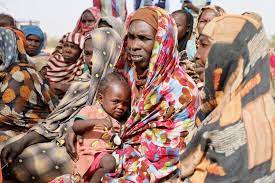Over the past 21 years, PEPFAR has invested a substantial $110 billion in the fight against the disease, resulting in the saving of 25 million lives and preventing the transmission of HIV to 5.5 million children born to HIV-positive mothers.
In addition to saving lives, PEPFAR has strengthened healthcare infrastructure by establishing 3,000 government laboratories, training 240,000 health workers, and consolidating 170,000 health facilities across the African continent.
Despite these remarkable achievements, Ambassador Nkengasong emphasized the ongoing challenges posed by HIV/AIDS. In 2023, the disease claimed 650,000 lives worldwide, with 60% of those deaths occurring in Africa. Even countries like Botswana, considered a model in the fight against HIV/AIDS, continue to face new infections, with 4,200 cases reported in 2023 alone.
To address these persistent challenges and achieve an HIV/AIDS-free generation by 2030, PEPFAR is seeking a five-year reauthorization through 2030. Ambassador Nkengasong stressed the importance of overcoming disparities in access to treatment, particularly among children, and sustainably strengthening health systems across the continent.
Beyond its focus on HIV/AIDS, PEPFAR’s investments in healthcare infrastructure and human resources have also contributed to the overall capacity of African countries to address multiple health threats. This holistic approach proved invaluable during the COVID-19 pandemic, demonstrating the lasting impact of PEPFAR’s efforts.
AC/sf/lb/abj/APA


